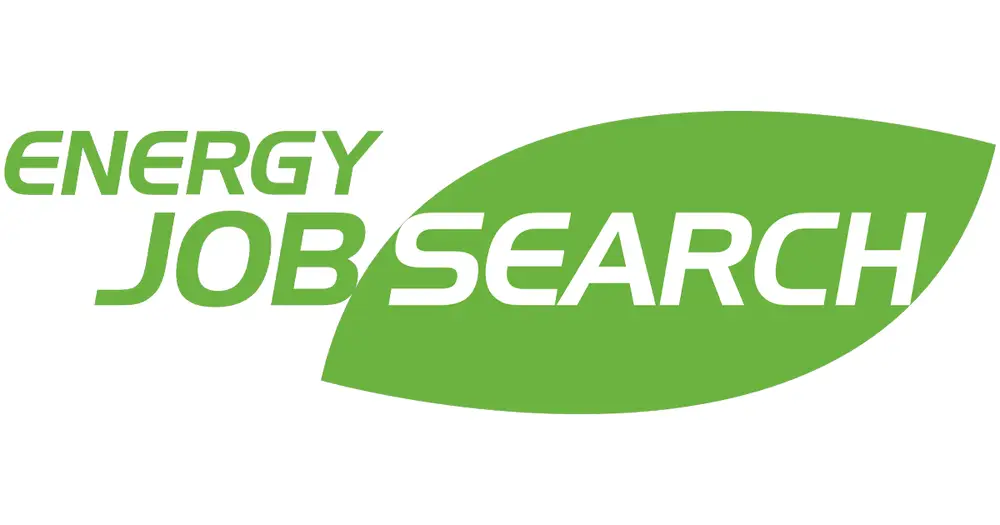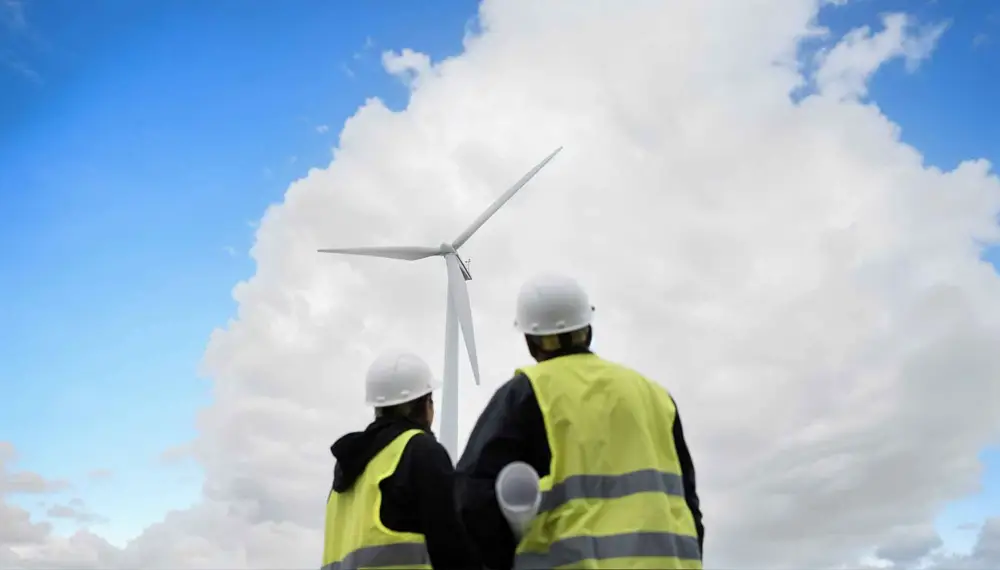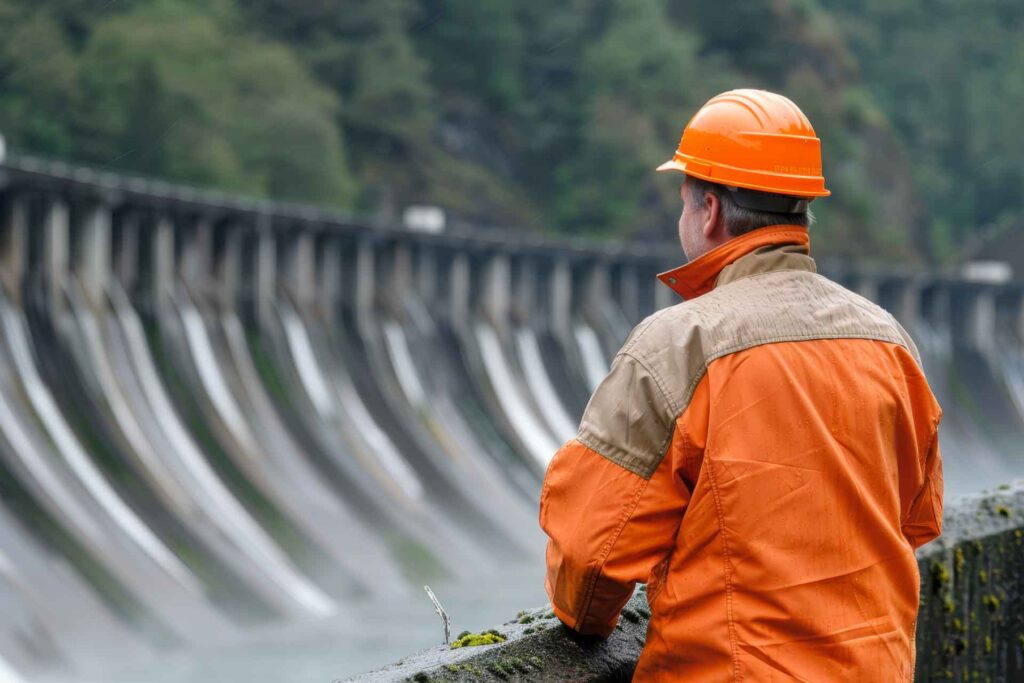The grave effects of coal, oil, and other natural gases on the environment are an ongoing concern in the United States. Even though they’re the primary power sources today, they’re limited in supply and rapidly depleting.
This means more money, effort, and time is being put into renewable energy such as wind, hydro, and solar. Heightened interest in sustainable energy sources has caused a nationwide boom in renewable energy technician jobs.
With varying specialties, from wind turbine technicians to solar installation technicians, there are numerous pathways that you can follow as you begin your journey in the renewable energy sector.
Let’s delve deeper into the role of a renewable energy technician, how to get started in this type of career, and your future career prospects. Keep reading to learn more about the benefits of working as an entry-level renewable energy technician in the United States.
Renewable Energy Technician: Job Description
A renewable energy technician ensures that all equipment associated with the generation, collection or distribution of alternative power is functioning correctly. As a renewable energy technician you might expect to work outdoors in all weathers, as well as facilitating indoor operations.
A handful of tasks and skill sets that might be expected of a renewable energy technician include:
- The erection of wind turbines
- Solar panel orientation
- Gauging the output of hydro-electric generators
It is therefore vital that a renewable energy technician is proficient in setting up mechanical equipment. In addition, connecting energy circuits, fixing wires and operating renewable power sources confidently is pretty important too.
As mentioned above, a renewable energy technician can expect to work with all different types of renewable energy sources. On the job, you’ll gain knowledge about each source type and learn how to install, maintain and repair these vital energy systems.
This is a natural first career step for any individual with an interest in electrical trades and green technology. It is particularly exciting as so much research and development is being put into sustainable energy sources! That is, opportunities are generous.
Key Skills Required of a Renewable Energy Technician
As a renewable energy technician, you will have several transferable skills that will be relevant to your role. Although you’ll receive thorough training, you will have certain expectations for your skill sets when applying for the role.
Some of the key skills required include:
- Excellent problem-solving and analytical skills
- Strong communication skills
- The ability to work as part of a cohesive team
- Good attention to detail
- Strong and advanced math skills
- Performing tasks with a high level of accuracy
- Adaptability to changing technology and systems
- Confidence in working at height and strength for heavy lifting
The industry-specific areas of knowledge that are expected also include:
- Understanding of electrical safety protocols and legal requirements
- Knowledge of renewable energy technology and key systems
- Interpreting technical drawings and schematics of energy systems
- An understanding of energy system maintenance and installation
- Confidence in using industry specialist tools
Many of these industry-specific skill sets can be learned via training courses and renewable energy qualifications. However, most knowledge will be picked up whilst working in your chosen industry.
You might be wondering if you qualify for a renewable energy technician job. Here are some of the qualifications, education and training courses that might be expected of an entry-level technician.
Qualifications and Education
A renewable energy technician usually needs to obtain a bachelor’s degree in mathematics, physics, engineering, building, construction, design and technology. Some workplaces don’t require a bachelor’s degree at all; a high school diploma is, however, essential.
“After obtaining a high school diploma, an individual can proceed with completing an apprenticeship, a combination of classroom and on-the-job learning in the field.”
Technological know-how is fundamental for renewable energy technicians as they will be responsible for repairing, maintaining, and installing sustainable energy sources. Whether you’re using scientific software or electronic systems, you’ll need a strong background in tech.
By demonstrating your background experience with technology, software, electronics and circuits, you will likely have an advantage in this field. Additionally, gaining as much experience as possible via work, volunteering and on-the-job training are beneficial for obtaining a relevant role.
Renewable Energy Technician Training
There are a handful of ways in which you can expect to obtain your training as a renewable energy technician. As mentioned earlier a high school diploma is the starting point for training in the renewable energy sector.
Then, an individual can go on to complete an apprenticeship, a combination of classroom and on-the-job learning in the field. As the trainee, you’d be under the supervision of a highly-trained specialist in the sector. By this way, you’ll be able to learn a lot during your time with them.
If an apprenticeship isn’t the right pathway for you, it’s possible to complete a training course via an in-person or online college. This will provide you with a qualification or associate degree. It will equip you with the knowledge required for gaining an entry level job into the field of renewable energy.
During your training course you would expect to learn about installation processes, best practices, site analysis, design techniques, problem solving, diagnostics, construction safety and energy systems. You will then have all of the relevant know-how to scope out up and coming jobs in your local area and further afield.
Likely Locations for Entry Level Renewable Energy Technician Roles
The top locations for renewable energy technician jobs include California, Texas, Illinois, Michigan, Ohio, New York, North Carolina and Massachusetts. However, there are ever growing opportunities for these types of roles all across the United States.
South Dakota, Washington and Idaho produce 75% or more of their energy from renewable sources. Consequently, these locations have already created ample opportunities for energy technicians to work on their projects towards a greener way of living.
Although it’s one of the smallest states of the Nation, Vermont must be acknowledged as the top producing state for renewable energy. It is the lowest emitter of carbon dioxide in the nation. That is, there are no longer any coal-fired power stations in the state.
Between hydropower, biomass, solar and wind power 100% of Vermont’s energy comes from renewable sources, and other states are setting goals to achieve the same success in the near future.
Demand for wind specialists and solar technicians is at an all time high, which also means that salaries have never been more competitive. It’s the ideal time to start building a career in renewable energy no matter what state you’re based in.
Career Progression Options
If you get started as a renewable energy technician, there are many ways to progress your career.
One of the most common career progression pathways is to become a renewable energy project manager or a renewable energy engineer. With hands-on experience in renewable energy in maintenance and repair, it’s a natural step into more responsibility and broader sustainable energy projects and installations.
Renewable Energy Technician Specialization
When you’re just starting in the field of renewable energy, you’ll likely learn about all types of sources, from solar to wind. However, there will be plenty of opportunities to specialize and hone in on your skill sets along the way.
In addition to improving your general skills, such as fitting construction materials, using power tools, and making minor repairs, you’ll be exposed to many specialist tasks that could pique your interest.
For example, as a solar photovoltaic installer, you’ll learn how to work out the potential power output based on the position of a structure towards the sun. This highlights the innovative nature of the job and provides you with unique skills that can be applied to managerial and senior positions in the future of your career.
Final Thoughts
Renewable energy technicians are vital for a greener future and a healthier environment. The work behind the scenes to ensure more workplaces, schools, and large facilities operate using renewable energy is more prominent than ever.
Installing and improving these systems will pave the way for more renewable energy projects in the future. Starting a career now guarantees a bright future and career progression in this industry, as the demand is higher than ever.
So, if you’re looking to support the progression towards a renewable, green, and cleaner economy, there are an abundance of renewable energy technician specializations for you to choose from. Start your journey in the renewable energy sector now and progress with a thriving, fulfilling and gratifying career.










